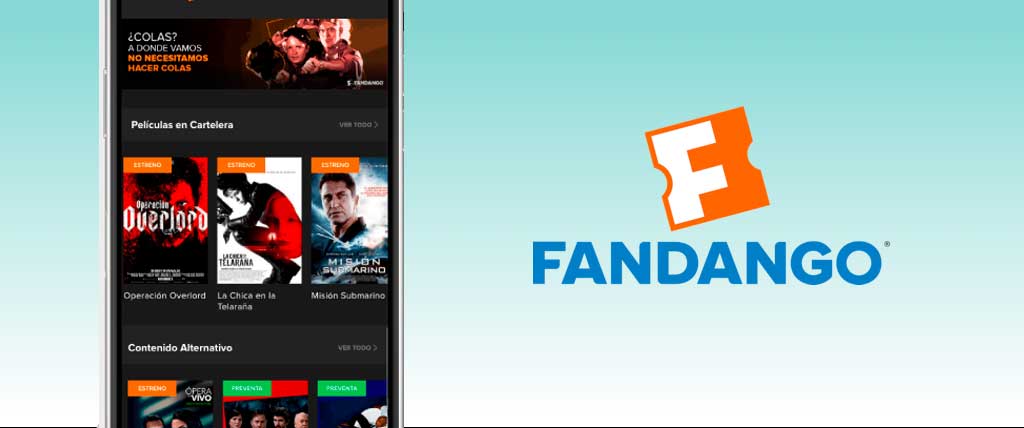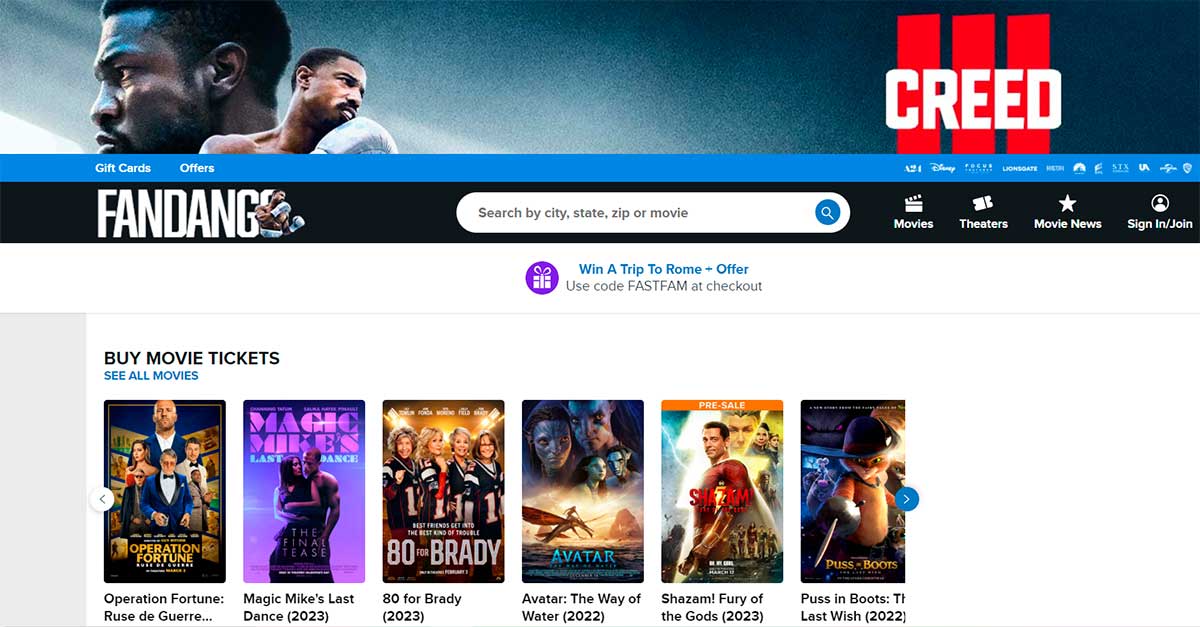Although movie theaters have been around for more than a hundred years, buying movie tickets has not been as easy as it is today. Let’s take a look at the movie ticketing systems existing in different periods and the role Fandango played in the ticket ordering service.
Movie theaters have become a new popular form of public entertainment in the twentieth century. Starting with screening animated movies at existing vaudeville theaters and other public venues that could be darkened, movie theaters today may have up to thirty screens in so-called multiplex complexes.
Buying a movie ticket today is a matter of minutes. It typically happens online ahead of time, using a convenient payment method. However, online ticketing is actually quite a fresh practice, tracing back to the early twenty-first century.
History of ticket ordering
It took movie theaters about a hundred years to provide their customers with comfortable ways to order and pay for their tickets remotely.
Between 1905 and the 1980s, movie goers had to show up much earlier before the movie start and stand in lines in order to get a ticket. In exceptional cases, at certain movie premieres, customers could reserve their seats via mail-ordering. Thus, for the most popular franchises like Star Wars, clients needed to wait for up to 36 hours in order to get a good spot at the movie theater.
Moreover, there weren’t even resources available to find out about the movie schedule.
Only in 1989, the innovative service MovieFone introduced an interactive telephone movie guide that informed callers about local theater listings and movie times. MovieFone was the first company to give its customers the opportunity to pre-purchase movie tickets at participating theaters for a small extra fee. The clients then had to arrive at the venue’s will-call windows that allowed callers to pick up their pre-purchased tickets. The service was quite popular, so the company received 150 million calls from 1989 to 1997.
Securing movie seats ahead of time became a relief for movie-goers. Thus, the trend continued to evolve. The first self-service movie ticket kiosk was installed at Sony Lincoln Square Theatre in New York City in 1996. As the new millennium approached, so did new services – Fandango and MovieTickets.com.
Online movie ticket booking
The two pioneers of online movie ticketing service have presented strong competition to MovieFone. However, in the beginning the systems were imperfect, with double charges for a single ticket often appearing on credit card statements.
Besides, customers were initially confused about the variety of new services offered, as well as the necessity to provide credit card information online or over the phone. Therefore, by 2003, only 2% of all tickets in the US were bought ahead of time. At the same time, in big cities like New York, the percentage was higher – about 20%.
The next innovation was already along the way – both Fandago and MovieTickets.com started offering an option to print tickets at home instead of having to wait in a will-call line. That added inconvenience to the movie theater employees who needed to scan barcodes on the self-printed tickets. However, customers enjoyed the additional comfort.

Ticket booking goes mobile
At the same time, the first-ever mobile apps were introduced for buying movie tickets. In 2006, Fandango created a mobile movie ticket buying platform. Sprint and Nextel customers could access it both via mobile web and text. Once they purchased a ticket, customers received a text with a barcode image to be scanned at the movie theater.
Fierce competition drive innovation in the online ticketing segment. A year later, MovieTickets.com also enhanced it mobile web applications with advanced personalization features. Thus, customers could now search for a film by theater location or title, view movie times, buy tickets, access new movie releases, get box office information, read movie news, and even view detailed theater maps.
The growth of online movie ticketing platforms inspired national theater chains to launch their own apps, incorporating in-house rewards programs for added perks.
The battle of new features continued. Atom Tickets launched a socially driven mobile app in 2014 to make it easier for movie-goers to coordinate their plans with friends. Its key innovation was a feature called Rally which offered a way to invite friends to a movie and split the bill among the group.
Another industry player, Moviepass introduced a monthly movie admission subscription service. Due to numerous flaws, it was short-lived. So was the company that exposed customers’ credit card data in 2019 and shut down the service soon after.
Innovations of Fandango
Along with movie ticketing, one of the earliest players of the industry, Fandango launched its own streaming service. Besides serving the American market, Fandango expanded to Latin America in 2016 with the acquisition of a Peruvian movie ticketing service Cinepapaya.
The company offers common online booking perks along with special offerings:
- pre-purchasing movie tickets;
- choosing preferred seats where available;
- queue jumping with pre-printed tickets, barcode scanned from smartphone, or credit card presented at the ticket office;
- Fandango VIP member’s club with a rewards program and discounts;
- Vudu streaming service with movies to rent or buy without a monthly subscription fee;
- Rotten Tomatoes recommendation resource for quality media entertainment;
- exclusive film clips, trailers, celebrity interviews, reviews by users, movie descriptions, and some web-based games available to Fandango members;
- an ability to refund or exchange pre-ordered tickets up to 2 hours before the movie showtime.
Collaboration between PayPal and Fandango
As for the payment methods, Fandango has been looking for more checkout options and a faster, secure and more convenient checkout experience. Therefore, the company chose PayPal’s Braintree platform for expanded, integrated capabilities.
Braintree allows Fandango to accept cards, PayPal, and PayPal Credit through a single integration. Besides, the collaboration gave the online movie ticketing service an ability to split ticket costs with friends through both PayPal and Venmo. Additionally, Fandango users could then set and save their preferred payment method for return visits. The feature is facilitated with Braintree’s token technology that removes the PCI burden of handling unencrypted data.
Finally, Braintree’s ability to scale gives Fandango an ability to keep up with today’s growing demands and quickly adapt to future challenges. Thus, PayPal’s processing solution helps ensure there’s no interruption to the purchase flow when demand spikes during pre- sales and the weekend of movie openings.










